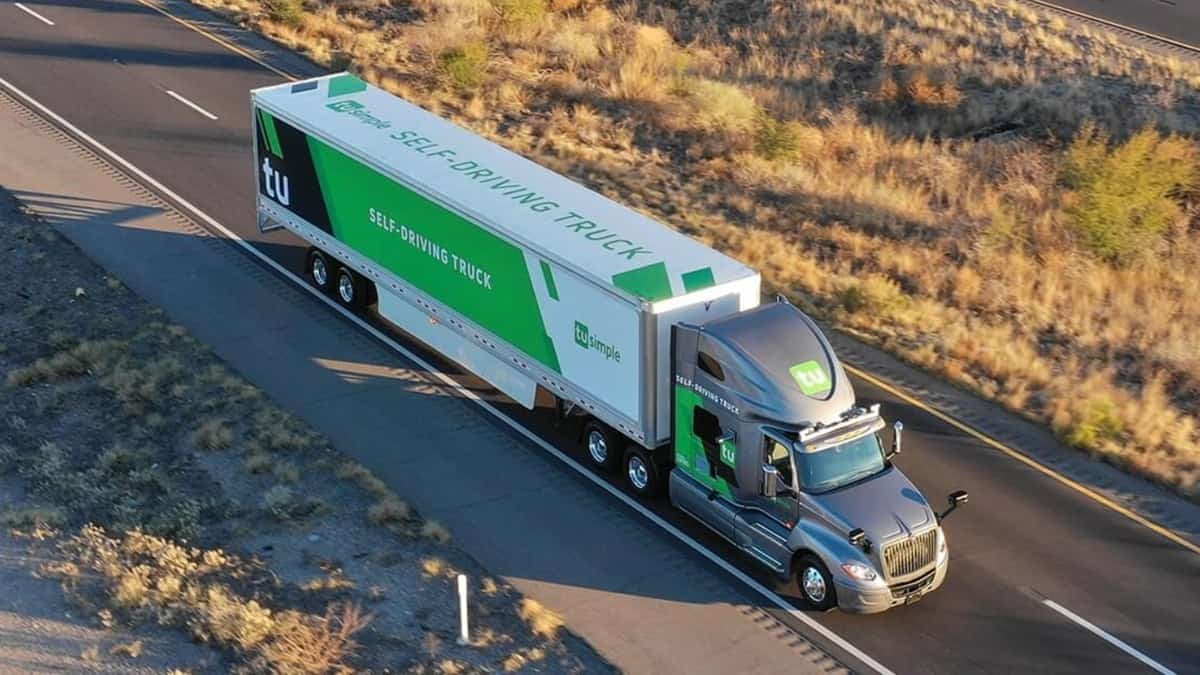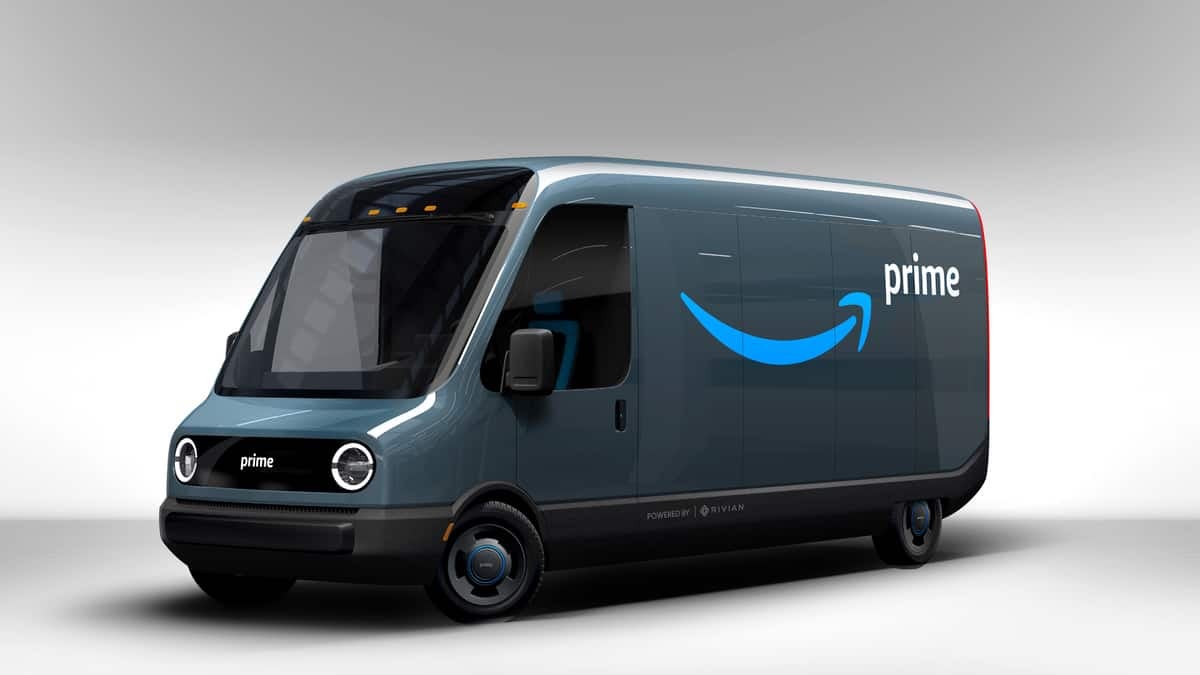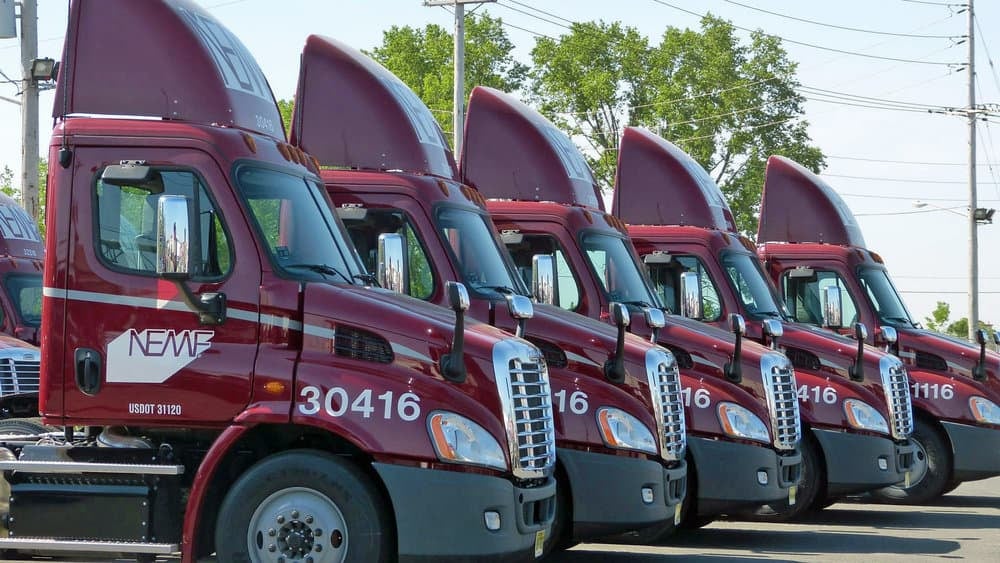The news we pay attention to every day is a harbinger of how events will unfold in the near future. As we enter 2020 and the beginning of a new decade, here are three news items that may be indicators of phenomena worth watching in the trucking industry between now and 2023.
Celadon’s Chapter 11 bankruptcy filing – industry structure
News about Celadon’s Chapter 11 Filing on December 8 has consumed the trucking industry. That news has been very well covered by FreightWaves and other news outlets. As reported in FreightWaves, Celadon’s bankruptcy is significant because it’s the largest for a truckload carrier. Celadon’s bankruptcy is also interesting because it followed on the heels of the SEC charging the company with accounting fraud in April, and on December 3, the SEC indicted William Eric Meek – Celadon’s former President and Chief Operating Officer, and Bobby Lee Peavler, Celadon’s former Chief Financial Officer on charges of corporate fraud and accounting malpractice. Basically, they hid Celadon’s financial losses through accounting shenanigans.
Celadon is only the most recent and the most visible in a spate of trucking company bankruptcies in 2019. By certain counts nearly 800 trucking companies have already declared bankruptcy in 2019, more than doubling the count in 2018.

Convoy automates freight brokerage – automation
On December 18, Convoy announced that it had reached 100% automatic freight brokering in top freight markets. The image below illustrates what this means.
This follows on the heels of the startup having raised a $400 million round of venture capital financing just last month. Convoy and several other startups like Uber Freight and Transfix have been working on refashioning the business of freight brokerage, and venture capitalists have shown an appetite for financing these startups.
The theme of automation goes beyond business process automation, such as that reported by Convoy. Other technology startups are working on automated trucks. For example, over the course of 2018 and 2019, Embark and Plus.ai reported milestone accomplishments in developing technology for autonomous trucks, with each reporting successful tests of that technology in cross-country trips.

Also, TuSimple announced a pilot with the U.S. Postal Service in which TuSimple’s autonomous trucking technology would be used in a pilot to transport mail.
Fully automated trucks may take a while yet to become a reality that significantly affects incumbents. However, Convoy’s announcement suggests that business process automation in the trucking industry is closer than we realize.

The Amazon effect – pricing and technology
Profit margins in the general freight trucking industry are thin. The trend of ecommerce growth coupled with the practice of offering free next-day delivery to consumers has already compressed, and will continue to compress, the profit margins that general freight trucking companies earn.
Trucking companies that operate in the spot-market are in a position of weakness relative to shippers, and the volume of ecommerce shipments does not matter if every extra shipment is a loss-creating shipment for the trucking company that transports it.
Further, Amazon is investing a great deal of talent and capital into building its logistics capabilities. Charley Dehoney, my #MarketVoices counterpart, wrote an article which ran on FreightWaves on October 29, Logistics as a lambda function. His article describes what is happening in detail. As Amazon Logistics’ capabilities have increased, it has started competing more directly and robustly with UPS and FedEx.
What questions do these events raise?
Broadly speaking, here are the questions these events raise:

First, given New England Motor Freight’s bankruptcy filing on February 11, and how the rest of 2019 unfolded for the trucking industry, does this year mark the beginning of a shift in the structure of the general trucking industry?
Second, given the amount of venture capital available to startups seeking to automate the trucking value chain, is 2020 the year when digital freight brokers will start to have a meaningful impact?
Third, what effect will Amazon’s investments in building its logistics network have on the trucking industry?
Do you think the next two or three years will be business as usual in the trucking industry, or do you think we may be witnessing significant changes taking place in the industry? Let us know by leaving a comment below.If you are a team working on innovations for the trucking industry, we’d love to tell your story in FreightWaves. I am easy to reach on LinkedIn and Twitter. Alternatively, you can reach out to any member of the editorial team at FreightWaves at media@www.freightwaves.com.

Brainerd storage
There are a lot of folks investing a lot of money in EV/self-driving vehicles so I think you can rest assured it will have a great impact on the industry in the future. When will that time come? We will have to wait and see.
Stefan Minor
Things move forward and times change. If you are not changing and redesigning yourselves then you will fall into the ditch. I work for XPO and Brad seems to have a good handle on this. While I’m not completely secured with my job I still feel better than what I would working for another company. You either readjust with the time (XPO logistics) or you loose (CF).
Mickie
For those who have been hiding from these changes somewhere, they’ve been happening already over the past 30 years, and more noticeably in the last 5 years, as government focus has shifted onto us. Who said we needed all these new regulations and AI developments to make us practically unemployable? It wasn’t us, that is for 100% sure. We do the job every day but we do not know what we’re doing, at least in the eyes of the idiots who write meaningless and costly new regulations (hoops for us to jump through). Our Liberty is being stripped from us as we focus on the day-to-day realities of trucking. Personal ingenuity is becoming a valuable factor as we try to circumnavigate the BS and actually turn a profit. Once we do and avoid government-enacted operating costs which now rise every year regardless, they knock us down and shove new restrictions, regulations, and unrecoverable operating costs on us as they sit back and belly laugh at our efforts to remain solvent. What we really need to do is find an effective way to limit the government’s abilities in interfering with Free Trade and Free Commerce within these United States.
Noble1
Quote:
“What we really need to do is find an effective way to limit the government’s abilities in interfering with Free Trade and Free Commerce within these United States.”
The “government” interferes due to the industry lobbying them and industry abuse .
If you want government to stop interfering in ways you dislike , then you need to position yourself to “influence” them , and or put your own puppet in office .
In my humble opinion …………
Geo
So to me the big question is who do you sue when that automated truck hits a school bus? Is it the company, the network it uses, the malfunctioning cell tower, the weather that blocked the signal, the software it runs, the programmer, or the truck manufactor(look at Winchester guns in Connecticut). Sounds like a slip an fall lawyer’s dream come true. As a driver I see the billboards along the road in every state “Big Truck accident” Call me at ###-###-#### I’m more than welcome to share the bullseye with them. Welcome to the future.
Karen
My concerns are that regulations are not well thought out to plan for our economy’s future. Even if every truck went automated today I would have very few good feelings about the FMCSA and DOT being able to care for the needs of my family. All it does is leave my future with them and that’s a wise place? I’m buying a farm before I starve to death. After being in this industry a year….no way would I live in a city and hope a truck might be doing farm to table by the time I retire. I’ll keep driving but it’s not my sustainable future.
Robert
Convoys 100% automated brokerage is awefull. Read reviews on DAT
Henry
As I read the replies from other folks it occurred to me that most of you have not been around trucking for very long. What happened at Celadon is nothing more than mismanagement of the company which caused them to file bankruptcy. Any sound company will adjust to the changing conditions and alter the way they conduct business to survive or if not they will go by the wayside. For examples I give Burlington Motor Carriers that was a large trucking company that went bankrupt back in the early 90’s (remember the stars that were on the side of the trucks). And for those that were trucking back then, you would remember when you could look in any truck stop and see at least 5 J. B. Hunt trucks parked in the lot. Now you would have to look hard in multiple truck stops to see just one parked. But they are still around.